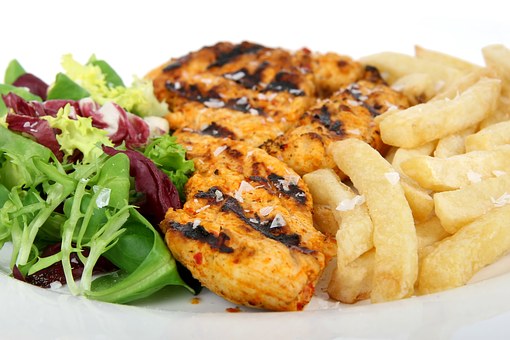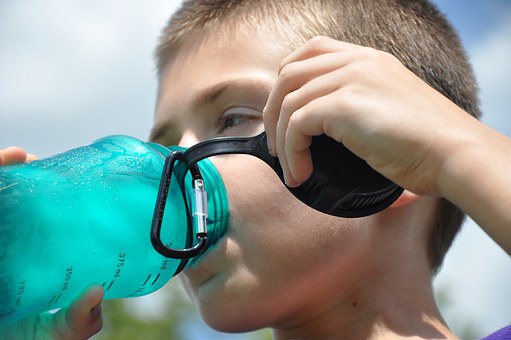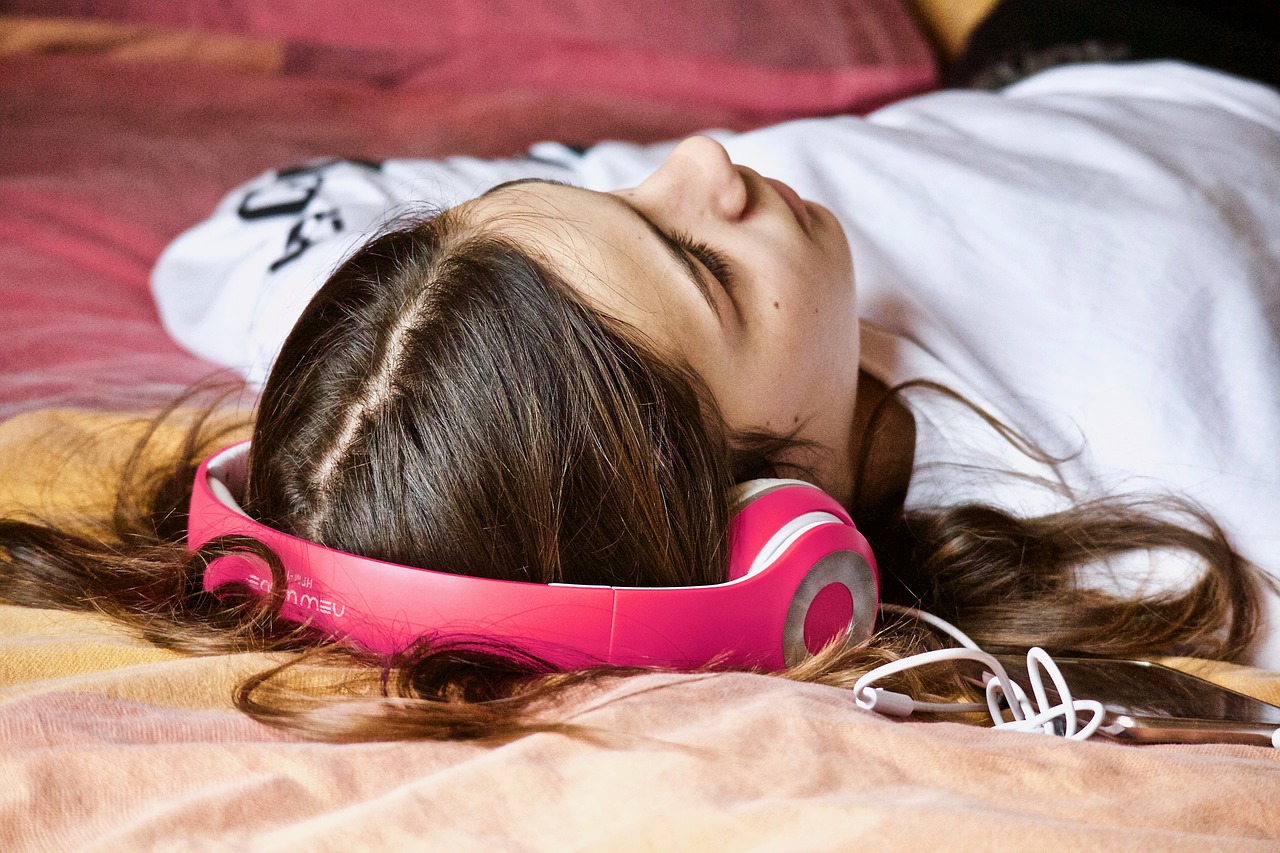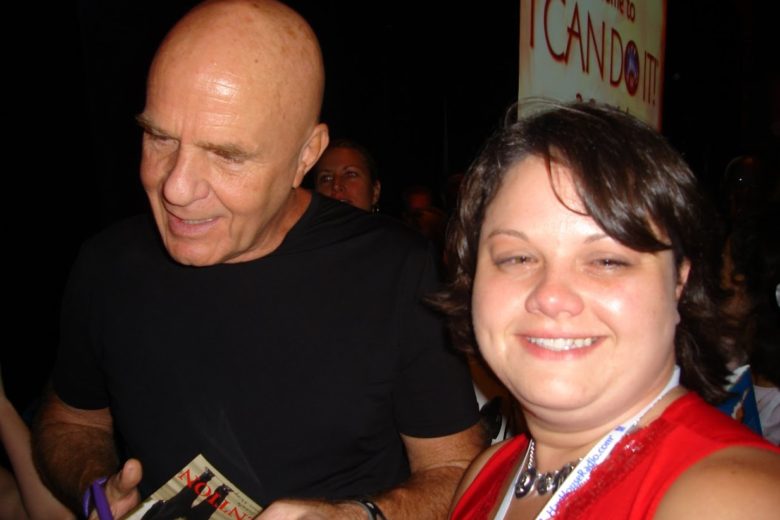This post contains affiliate links, meaning we may receive compensation when you make a purchase through one of our links. However, all opinions and recommendations are our own.
Across the United States, participation in youth sports is becoming increasingly popular and widespread. It is not uncommon for children to begin playing on competitive travel teams as young as 6-8 years old.
While becoming involved in sports at a young age has important physical, psychological, and social benefits there is always the risk of injury. As parents, we can help keep our children healthy and reduce the risk of injury by teaching them how to properly care for themselves.
Our own daughter began playing recreational soccer at the age of seven. She learned the basics of the sport with ease and never doubted her ability to drive the ball into the goal. Her confidence and naturally competitive spirit got her noticed quickly and she was playing club/travel soccer at age eight. She is now 13.
At eight, practice is probably a little like recess. You get to go run around outside, act silly with your friends, and maybe learn a few things while playing fun games.
As a young athlete becomes older and more experienced the sport generally becomes more competitive.
To keep up and to excel at higher levels often means increased intensity and duration of training, year-round training, and a higher level of skill difficulty.
For our daughter, this means team practices 2-3 times a week, daily conditioning, and frequent specialized skills training.
When she was eight, it was completely on us to make sure she was properly hydrated, well nourished, and well rested. At 13, she is old enough to take a little more responsibility for keeping herself healthy and at the top of her game.
She knows that her body is hers alone and that no one can take care of it the way she can. Only she knows if she is hungry or tired or sore. We encourage her to tune in to the things that make her feel good, healthy, and strong and to do more of those things.
As much fun as it is, life for a competitive young athlete can be hectic and exhausting at times. If not managed properly it can really take a toll on their bodies and emotional state. Talk to them and encourage them to take responsibility for their health and wellness.
Essential self-care to discuss with your athlete;
1) Fueling the body
Nutrition is HUGE in my opinion! It is the key…the foundation on top of which health is built.
- Load up on veggies and protein (protein is the building block for muscles)
- Eat a moderate amount of healthy carbohydrates (sustained energy/endurance)
- Minimize consumption of junk food, fast food, and sodas (higher energy/healthy digestion)
- PROTEEN nutrition shakes. Protein shakes are not just for bodybuilders (great for picky eaters or those kids who don’t really like to eat a lot). These particular shakes are specifically formulated for young athletes! Another one of our favorites are these clear protein drinks.
- Vitamin C – Vitamin C is an antioxidant. It is important for healthy skin, bones, and connective tissue. Vitamin C supports the immune system and promotes healing in the body. Sources include broccoli and greens, tomatoes, peppers, and of course, citrus. For an extra immune boost invest in a good quality supplement. Our favorites are Emergen-C and Nuun Immunity.
Points for discussion:
- Discuss the importance of the immune system in keeping them healthy. Stress is a big immune system killer. Even the “good” kind of stress that comes from physically challenging the body can take a toll on the immune system, gradually wearing it down if left unattended. Proper nutrition helps build the immune system to ward off sickness and keeps them feeling good and performing well.
- Garbage in = Garbage out – Feed the body according to what you expect to get out of it. No one can eat fast food all the time or load up on sugary snacks and soda and expect to play their best game. Even if they can get away with it once or twice, it is not sustainable.
- Balance – While something like Whole 30 or Keto may be a great lifestyle choice for adult athletes, I tend to lean away from trying to impose any kind of super restrictive diet with young athletes for a couple of different reasons.
- Kids tend to eat intuitively…meaning they will usually eat when they are hungry and stop once they are full.
- To eliminate ALL food one might consider “unhealthy” would take all the fun out of being young. Let’s face it, sometimes a kid just needs to have ice cream!
- An 80/20 balance is something we shoot for. I don’t see anything wrong with guiding them to make healthy food and drink choices at least 80 % of the time and allowing themselves to balance that with treats or not so healthy choices no more than 20% of the time.
2) Hydration
Considering that the human body consists of approximately 70% water, proper hydration is vital for everyone.
Especially important for athletes, water helps to;
- regulate body temperature
- flush waste (including lactic acid which is produced by the muscles during intense exercise and causes muscle fatigue and soreness)
- lubricate joints
- metabolize and transport carbs and proteins to be used as food by the body
Points for Discussion
- Staying properly hydrated, period. Proper hydration means making sure to drink water before, during, and after exercise.
- Not being properly hydrated can cause muscle cramps, fatigue, and dizziness
- Checking the color of the urine is probably the easiest way to have your athlete gauge their level of hydration.
- Colorless/light yellow urine = proper hydration.
- Dark yellow/amber-colored urine = Drink some water!
- Just to keep it easy, for proper daily hydration, a good rule of thumb is to consume half your body weight in ounces of water. A person weighing 110 lbs. would want to drink about 55 ounces of water per day. I prefer a Contigo stainless water bottle but the kids LOVE this plastic BPA-free option. They also come in these cute designs (and they really are spillproof!!).
- Sports drinks – Unless a person is working out for long periods at high intensity, plain water is best and sufficient for most.
- During high-intensity exercise, water should be used to rehydrate for the first hour. After that, it may be beneficial to consume a small amount of a sports drink for the hydration benefits of sodium and electrolytes.
- It is important to note that most sports drinks contain a good amount of sugar. Encourage your athlete to use the 80/20 balance here. 80% (or more) water – 20% (or less) sports drinks.
- Coconut water is a great alternative to sports drinks. Also worth checking out are these Coconut On-The-Go Powder Stick Packs
- There are other great products available to replace electrolytes. We like Nuun Hydration tablets, Ultima Electrolyte Powder, and Emergen-C Electro Mix.
3) Stretching
It is important that athletes stretch before and after physical activity. Consider stretching as a means to maintain the health of the muscles and connective tissues and prevent injury.
Points for Discussion
- Stretching BEFORE physical activity prepares the body for physical exertion by warming the joints, tendons, and muscles
- Stretching AFTER physical activity reduces tension in the muscles that, if not addressed, can cause injury and reduce
the quality of performance over time. Stretching also speeds up the rate at which proteins are used to repair muscle fibers in the body. This is how the body gains muscle tone, strength, and resilience. - Stretching as MAINTENANCE relieves stress, improves circulation, oxygenates the muscles, accelerates recovery of the joints, tendons, and muscles ultimately preventing injury.
Helpful Tip
Yoga is a wonderful way to practice stretching as maintenance. It is relaxing and fun and it is something my daughter and I get to do together.
At the end of her spring season in 2017, she strained a hamstring muscle. It would begin to feel better, then because of her crazy game and practice schedules, she would re-injure it every couple of weeks.
That is when we decided to get her to try yoga. It began to feel better after a couple of classes. She continues to do yoga when her schedule allows and has not injured it since.
Here is a great Yin Yoga Series to get you started. This series is included in your Prime Membership and can also be purchased per episode. This Yoga For Teenagers (Blu-Ray) is a good one too.
4) Good sleep habits
Sleep is essential for restoration and rejuvenation of the body. I’m sure there are theories and formulas out there that will calculate the exact number of hours of sleep your young athlete should be getting. Feel free to look them up.
Again, I’m more concerned with balance. We struggle with this one. Our daughter is improving, but like any teenager, she likes to stay up way too late sometimes playing on her laptop or phone. Either way, it’s worth a try.
Points for Discussion
- Discuss the importance of getting regular, quality sleep.
- Encourage your athlete to prepare ahead for
game day or tournament weekends. This means turning off electronics and getting to bed. If they can’t make it to bed early….at least shoot for a time that will allow a minimum of 7 hours of sleep. - If he/she tends to have trouble falling or staying asleep try an Epsom salt bath, warm milk with honey, or a Melatonin supplement.
5) Relaxation/Downtime
Relaxation and downtime are necessary to reduce stress, replenish mental and physical energy, and prevent burnout. We know what they say about all work and no play but this one should be easy.
Points for Discussion
- Encourage your athlete to take time to rest and relax the mind and body. Some things you might suggest include reading, writing, naps, taking a walk, laying in the grass or on a hammock, watching tv, listening to music, dancing, singing, taking a bath, talking to friends…whatever it is that makes them feel relaxed and refreshed mentally and physically.
- So often, our daughter will be invited to go spend the night at a friend’s house, go see a movie, go skating or on a beach trip, or to attend a friend’s party. And so often, she has to decline because of her commitment to soccer. She puts in a lot of hours and a lot of work into training for her sport, so we try to let her go experience other things in life as often as possible. Again, it’s all about balance.
Remember, proper self-care prevents injury and burnout and optimizes athletic performance.
Cultivating a wellness mindset at an early age will help your young athlete develop healthy habits that they can carry with them and practice for the rest of their lives.
Do you have a favorite way you encourage your young athlete to care for themselves? Please share in the comments.









What great nutrition and hydration ideas for kids! It is true that vitamin C build strong bones, hair, nails, and teeth because collagen works when vitamin C is present. Nice read – thanks!